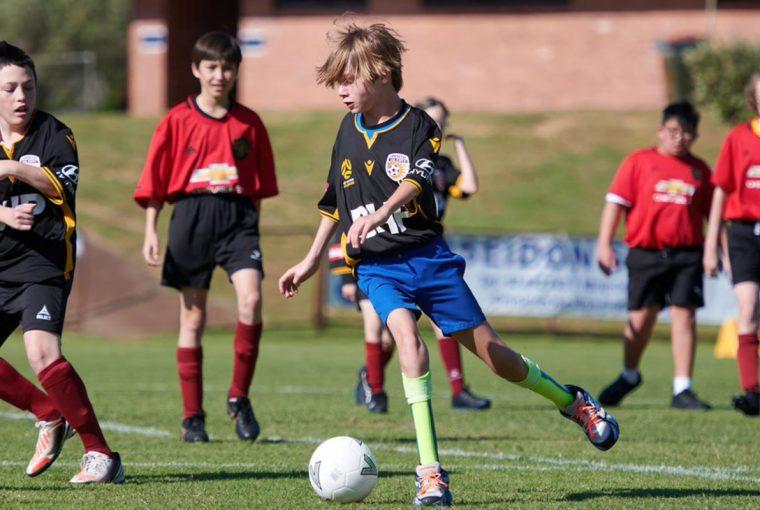Sport is an important part of our lives, offering numerous benefits to our physical and mental health. However, many people still face barriers to participating in sports due to a lack of inclusivity. This is why it is essential to prioritize making sports more inclusive and accessible to everyone. In this article, we will discuss the importance of making sport more inclusive and provide some strategies to achieve this goal.
First, inclusivity in sports is crucial because it promotes physical and mental well-being for all individuals. Regular exercise can help reduce the risk of chronic diseases such as heart disease, diabetes, and obesity. Additionally, participation in sports can improve mental health by reducing stress and anxiety, improving self-esteem, and promoting social connections. When sports are inclusive, people of all abilities and backgrounds can access these benefits.
Second, by making sport more inclusive we promote social equality and reduce discrimination. When individuals from marginalized communities are excluded from sports, it reinforces negative stereotypes and perpetuates inequalities. By promoting inclusivity, we can challenge these harmful beliefs and create a more equitable society.
Third, inclusive sports promote teamwork, leadership, and communication skills. By participating in sports, individuals develop critical skills that are essential in both personal and professional settings. When sports are inclusive, everyone can access these benefits, regardless of their background or ability.
So, how can we make sports more inclusive? Here are some strategies:
- Increase awareness and education: Sports organizations should prioritize creating an environment where all individuals can participate, regardless of their abilities. This can include providing adaptive equipment, modifying rules, and offering training to coaches and staff on how to work with individuals with disabilities.
- Promote diversity and cultural competence: Embracing diversity and cultural differences can create a more welcoming and inclusive environment, which can lead to increased participation and engagement from people of all backgrounds. This can include promoting the participation of individuals from diverse backgrounds and cultures, and offering language support for those who need it.
- Address issues of discrimination and bias: Sports organizations should focus on addressing issues of discrimination and bias that can prevent certain individuals from participating in sports. This can be achieved by establishing clear policies and procedures to prevent discrimination, providing equal opportunities for all, and promoting a culture of respect and inclusion.
- Celebrate inclusivity: Finally, it’s essential to celebrate and promote making sport more inclusive. By highlighting the achievements of individuals from marginalized communities, we can promote positive role models and inspire others to participate.
In the world of sports, inclusivity has become an increasingly important issue in recent years. Many successful sports teams have recognized the value of creating an inclusive environment, not just for the benefit of individual athletes but also for the success of the team as a whole.
These teams have recognized that inclusivity is not just a matter of social justice, but it also leads to better team cohesion and performance. By creating a welcoming and supportive environment, these teams have been able to attract and retain athletes from diverse backgrounds, leading to a stronger and more resilient team.
They have each implemented strategies and initiatives these teams have implemented to promote inclusivity, such as outreach programs to underrepresented communities, mentorship programs for young athletes, and the establishment of affinity groups and support networks within the team. By learning from their successes, we can gain insights into how to create more inclusive sports teams and foster a culture of acceptance and belonging in sports.
Here are a few examples:
- NBA: The league has implemented several initiatives to promote making sport more inclusive, including the NBA Cares program, which focuses on social responsibility, and the NBA Fit program, which promotes healthy lifestyles for all individuals.
- NFL: The league has launched the Play Football program, which aims to promote inclusivity and increase access to football for all individuals, regardless of their abilities.
- MLB: The league has launched several initiatives to promote inclusivity, including the RBI (Reviving Baseball in Inner Cities) program, which aims to increase access to baseball for underprivileged youth.
- NHL: The league has launched the Hockey is for Everyone program, which aims to promote inclusivity and diversity in hockey.
- MLS: The league has launched several initiatives to promote inclusivity, including the Soccer For All campaign, which aims to make soccer accessible and welcoming to all individuals.
These are just a few examples of professional sports teams and leagues that are making sport more inclusive in their respective sports. It’s essential to continue supporting and promoting these initiatives to create a more inclusive sporting environment for all individuals.
In conclusion, making your sport more inclusive is a process that requires ongoing effort and commitment. By prioritizing inclusivity and adopting strategies such as increasing awareness and education, promoting diversity and cultural competence, addressing issues of discrimination and bias, and celebrating inclusivity, you can create a more equitable and welcoming environment for all athletes. Remember, inclusivity is not just a matter of social justice, but it can also lead to better team cohesion and performance.
As an athlete or sports enthusiast, you have the power to make a difference by promoting inclusivity and challenging barriers to access and participation. By working together and embracing diversity, we can create a sporting culture that values and celebrates individual differences and promotes the benefits of sports participation for all. So, let’s commit to making sport more inclusive and continue to strive for a world where everyone can access the joys and benefits of sports.




